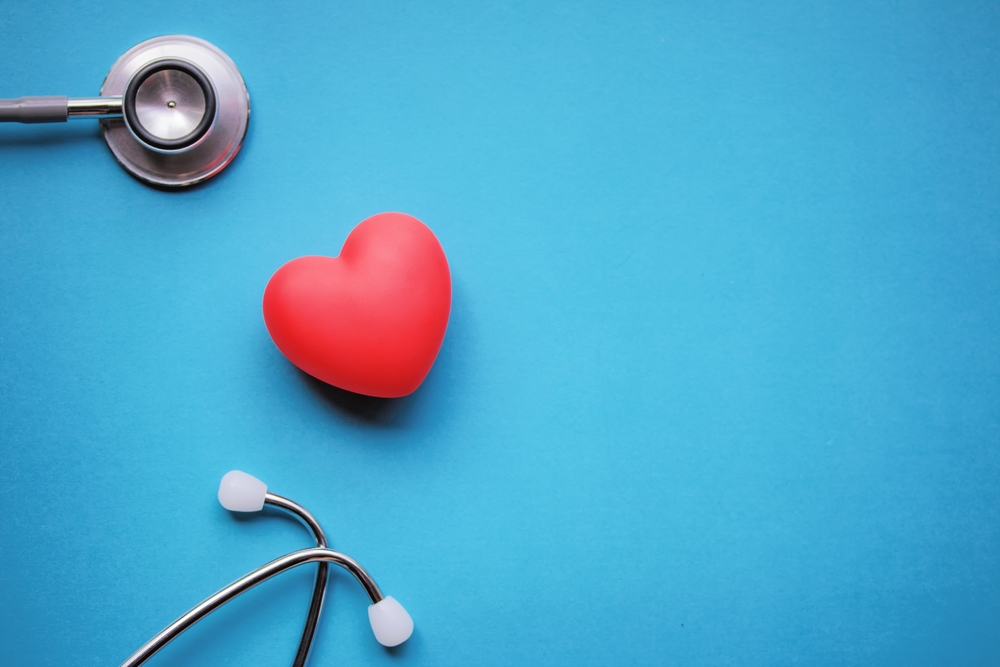It is quite clear that — despite advances in the pharmacy and in the clinic — heart disease remains a major public health problem. Providers can usually treat the symptoms of heart disease, but it typically gets progressively worse until something drastic is done, or worse, until something drastic happens. Treatments for other diseases, like an antibiotic for an ear infection, simultaneously remove the symptoms and get rid of the disease; yet this is not often the case with heart disease. This has always intrigued me. It is now well understood that part of the reason heart disease is so hard to treat is that it starts long before any signs of disease can be detected. Harmful forces, like high blood pressure or smoking, can take a toll on the cells and tissues overtime. Once these cells and tissues become damaged or dysfunctional, it is off to the races. Unfortunately, the finish line here is marked by pill bottles and visits to the doctor.
Scientists, doctors, and epidemiologists have identified several of the harmful forces that cause cardiovascular cell and tissue damage, leading to heart disease. Collectively, these forces are termed “cardiovascular disease risk factors.” Most are familiar things that we have long understood to cause heart disease — like smoking, cholesterol, and diabetes. But a new risk factor is emerging. Sleep.
Studies from scientists around the world have demonstrated that poor sleep is harmful to cardiovascular health. For example, our laboratory, the Integrative Vascular Biology Laboratory at the University of Colorado, Boulder has found that the cells lining the blood vessels that help regulate blood pressure and release clot-busting substances function abnormally in adults who sleep less than the recommended seven hours per night, compared to those who sleep seven to nine hours a night1,2. Other laboratories have clearly shown that poor sleep is associated with greater atherosclerosis, or development of the plaque that cause heart attacks.3 But we don’t understand why, or how.
We have recently published a study in the journal Experimental Physiology examining the difference in blood levels of important physiological regulators, or microRNAs, in people who sleep less than and more than seven hours per night. We studied 24 healthy middle-aged (44 to 62 years old) adults. Half of the subjects reported habitually sleeping less than seven hours per night, while the other half slept between seven to nine hours per night regularly. We discovered that the circulating levels of three specific microRNAs (miR-125a, miR-126, and miR-146a) were significantly lower in those who slept less than seven hours per night. These three microRNAs have been shown to be potent promoters of cardiovascular health, acting as breaks on cellular processes that lead to cardiovascular disease.
MicroRNAs are small molecules which stop the production, or “expression,” of certain proteins in cells. To some degree, they dictate the overall cellular health and function by inhibiting the expression of some proteins, but not others. We found three microRNAs to be lower in those with short sleep — miR-125a, miR-12, and miR-146a. They have been previously shown to block the production of protein that is known to induce vascular inflammation and dysfunction.4–6 Large clinical studies have linked low levels of these three microRNAs to the development and progression of heart disease.7,8 This represents a new mechanism through which sleep influences heart health and physiology. Additionally, these findings suggest there may be a circulating “fingerprint” of insufficient nightly sleep, which doctors may be able to use to evaluate a person’s sleep health.
Does this mean if we have a run of bad sleep that we are doomed? That is still up in the air. Research is currently underway to determine if restoring healthy sleep patterns to those that sleep less than seven hours per night can restore circulating microRNA levels to normal and improve the health and function of the cardiovascular system.
REFERENCES
1. Bain AR, Weil BR, Diehl KJ, Greiner JJ, Stauffer BL, DeSouza CA. Insufficient sleep is associated with impaired nitric oxide-mediated endothelium-dependent vasodilation. Atherosclerosis. 2017;265:41-46. doi:10.1016/j.atherosclerosis.2017.08.001.
2. Weil BR, Mestek ML, Westby CM, Van Guilder GP, Greiner JJ, Stauffer BL, DeSouza CA. Short sleep duration is associated with enhanced endothelin-1 vasoconstrictor toneThis article is one of a selection of papers published in the two-part special issue entitled 20 Years of Endothelin Research. Can J Physiol Pharmacol. 2010;88(8):777-781. doi:10.1139/Y10-046.
3. Jackson CL, Redline S, Emmons KM. Sleep as a Potential Fundamental Contributor to Cardiovascular Health Disparities. Annu Rev Public Health. 2015;36:417-440. doi:10.1146/annurev-publhealth-031914-122838.
4. Hao L, Wang X, Cheng J, You S, Ma S, Zhong X, Quan L, Luo B. The up-regulation of endothelin-1 and down-regulation of miRNA-125a-5p, -155, and -199a/b-3p in human atherosclerotic coronary artery. Cardiovasc Pathol. 2014;23(4):217-223. doi:10.1016/j.carpath.2014.03.009.
5. Chistiakov DA, Orekhov AN, Bobryshev YV. The role of miR-126 in embryonic angiogenesis, adult vascular homeostasis, and vascular repair and its alterations in atherosclerotic disease. J Mol Cell Cardiol. 2016;97:47-55. doi:10.1016/j.yjmcc.2016.05.007.
6. Kamali K, Korjan ES, Eftekhar E, Malekzadeh K, Soufi FG. The role of miR-146a on NF-κB expression level in human umbilical vein endothelial cells under hyperglycemic condition. Bratisl Med J. 2016;117(07):376-380. doi:10.4149/BLL_2016_074.
7. Wronska A, Kurkowska-Jastrzebska I, Santulli G. Application of microRNAs in diagnosis and treatment of cardiovascular disease. Acta Physiol. 2015;213(1):60-83. doi:10.1111/apha.12416.
8. Barwari T, Joshi A, Mayr M. MicroRNAs in Cardiovascular Disease. J Am Coll Cardiol. 2016;68(23):2577-2584. doi:10.1016/j.jacc.2016.09.945.
Follow us here and subscribe here for all the latest news on how you can keep Thriving.
Stay up to date or catch-up on all our podcasts with Arianna Huffington here.


